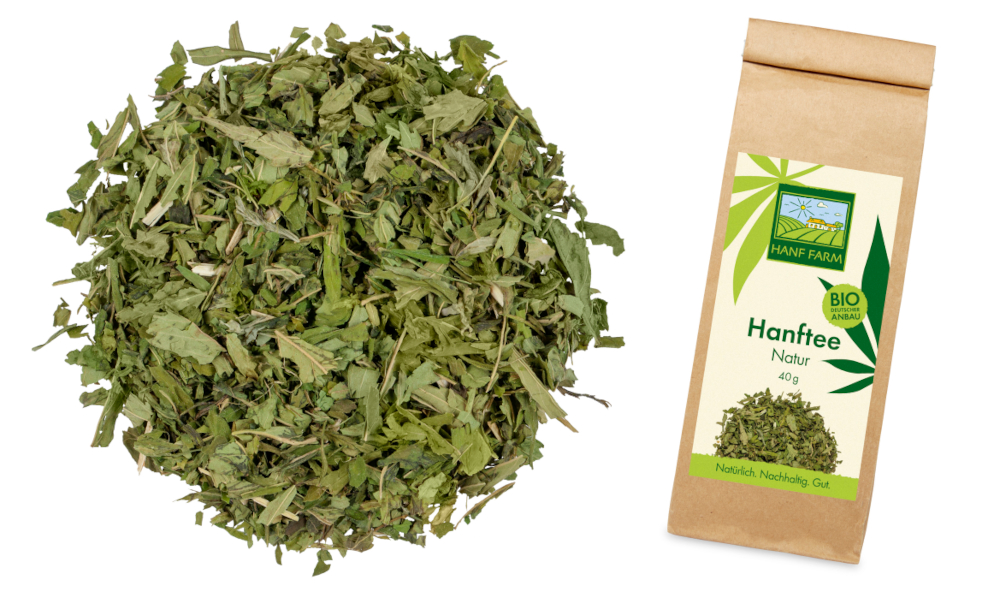Hemp leaves separate from flowers are a traditional food and may be marketed in Europe, the European Commission has clarified once and for all. The decision, which came from a Commission working group last week, unequivocally clears a legal path to the free trade of hemp tea and tea-like products within and among EU member states.
Hemp leaves are explicitly listed as traditional foods in EU documentation, as of last Friday, June 2.
The ruling should mean additional revenue streams for farmers, wholesalers and retailers.
“The decision from Brussels will finally give our industry further impetus and bring considerable sales growth,” said Daniel Kruse, Managing Director of Düsseldorf-based Hempro International and President of the European Industrial Hemp Association (EIHA), which fought for the EU-level clarification.
Long history
As far back as 1998, the European Commission issued a directive clarifying rules on hemp farming and allowing hemp derivatives, including flowers and leaves, to be sold.
Even before that, individual EU countries legalized industrial hemp products, most notably the Netherlands in 1993, Germany in 1996, and France in 1998. Other member states that now have clear laws designating hemp leaves as non-narcotic and non-novel traditional foods include Austria, Luxembourg, Poland, Czech Republic and Slovakia. Non-EU member the UK also considers hemp leaves traditional food.
More recently, the European Court of Justice further clarified the matter in a 2019 ruling which held that hemp leaves and flowers are not narcotic drugs and are therefore legal to sell in the EU.
Losses, raids, arrests
Nonetheless, hemp stakeholders have for years operated under misconceptions by some national authorities regarding hemp leaves (and flowers), suffering financial losses, raids and arrests. Amid the confusion, large producers of conventional tea products shied away from hemp teas, limiting the market for hemp leaves.
“Our scientific and historical evidence has triumphed over the prejudices,” Kruse said. “EIHA was able to prove without a doubt that hemp leaves were traditionally consumed as food, especially as tea, in several EU member states before 1997.”
Foods not consumed in Europe prior to 1997 are considered new or “novel” foods, and must gain approval from the European Food Safety Authority to be sold. CBD produced from hemp flowers, for example, was determined to be a “novel” food.
Not narcotic, not novel
While most EU countries have taken a relaxed approach to hemp leaves, officials in Germany have been more strict – and confused – in one instance charging a Braunschweig hemp tea seller with drug trafficking in 2021, based on the misconception that the company’s products were narcotic in nature. Germany’s Federal Court of Justice (BGH) later annulled the charges against the Braunschweig company, overruling a regional court. Some German states have also attempted to treat hemp leaves as novel foods.
Kruse, who sold hemp tea in a retail store in Düsseldorf as early as 1996, found his company on the tip of the spear in 2021 when Germany’s Federal Office for Consumer Protection and Food Safety (BVL) denied Hempro International’s request to import hemp leaves from Austria to Germany. The company is now in court against the BVL for violation of its commercial rights, arguing that the ruling by the federal court in the Braunschweig case declared hemp leaves are not narcotic, and their sale to end customers should therefore not be prohibited.

